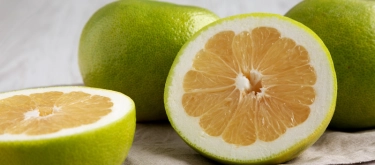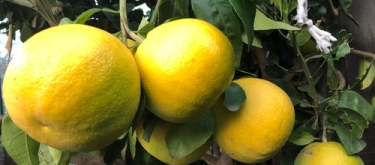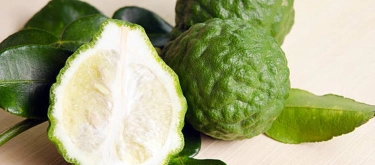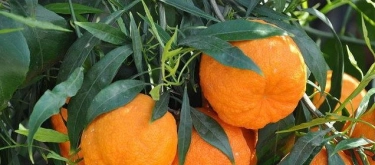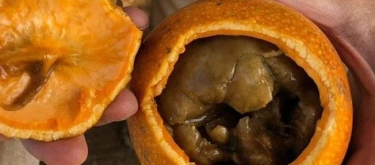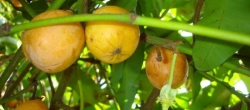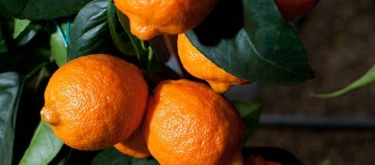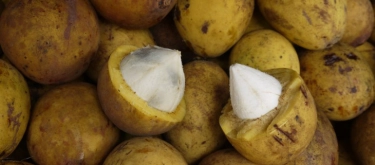Ugli Fruit: Taste Profile, Aroma, Benefits and Health Risks
Ugli fruit (also known as Jamaican Tangelo, Uniq fruit; Citrus reticulata × Citrus paradisi) is a citrus hybrid originating in Jamaica, derived from grapefruit, tangerine, and orange varieties. Its name, a playful reference to its irregular, bumpy appearance, contrasts strikingly with its deliciously sweet and mildly tangy flavor. Gaining international popularity, Ugli fruit offers a refreshing alternative to traditional citrus fruits.
Ugli fruit is generally safe, but individuals allergic to citrus fruits should exercise caution. Due to its moderate acidity, excessive consumption may cause irritation for individuals with gastritis, acid reflux, or peptic ulcers. Pregnant women can consume in moderation.
What does Ugli Fruit taste like?
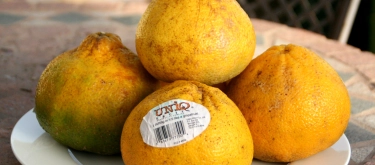
Complete Sensory Description:
Taste
Ugli fruit provides a pleasant blend of sweet and mildly tangy flavors, less bitter than grapefruit, with pronounced citrus notes reminiscent of tangerine and orange. The flavor finishes cleanly, lacking the pronounced bitterness typical of grapefruit.
Aroma
Its aroma is refreshing and citrusy, combining notes of tangerine, orange blossoms, and subtle grapefruit undertones, creating an invitingly bright and clean fragrance.
Texture
The thick, loose skin is easy to peel, revealing large, juicy segments inside. The pulp is exceptionally juicy and tender, with minimal bitterness and few seeds, making it enjoyable to eat fresh.
Appearance
Ugli fruits are large, typically ranging from 10 to 15 cm in diameter. They have a distinctly uneven shape and rough, thick rind colored greenish-yellow to orange when ripe. The flesh inside is pale-yellow to orange, segmented similarly to a grapefruit.
In-depth Flavor Analysis:
The appealing taste profile of Ugli fruit arises from a balanced composition of natural sugars, organic acids, and aromatic compounds:
-
Sweetness Profile: The sweetness comes primarily from fructose and sucrose, providing a pleasantly mild sweetness reminiscent of tangerine, softening the fruit’s natural acidity.
-
Acidic Notes: Ugli fruit contains moderate levels of citric acid, giving it a refreshing tartness, milder compared to grapefruit. This acidity complements the sweetness perfectly, creating a harmonious balance that enhances its refreshing qualities.
-
Bitterness and Aromatic Compounds: Unlike typical grapefruit, Ugli fruit contains low concentrations of bitter compounds like naringin, resulting in minimal bitterness. Its aroma and flavor complexity derive from volatile citrus oils rich in limonene, myrcene, and linalool, imparting refreshing citrus notes, subtle floral undertones, and faint herbal hints.
-
Environmental Factors Influencing Flavor: Climatic conditions, especially warm Jamaican temperatures, contribute significantly to its balanced sweetness, mild acidity, and distinctive aromatic properties.
Varieties and Culinary Applications:
Ugli fruit exists primarily as a single hybrid variety known internationally as Jamaican Tangelo or Uniq fruit. Culinary uses include:
- Fresh Consumption: Commonly eaten fresh, either peeled by hand or sliced like grapefruit.
- Juices and Beverages: Ideal for juices, smoothies, cocktails, and refreshing beverages due to its naturally mild sweetness and lower acidity.
- Salads: Excellent addition to fruit or vegetable salads, pairing well with avocado, seafood, leafy greens, and nuts.
- Cooking and Sauces: Used to enhance seafood dishes, marinades, sauces, and dressings with a balanced sweet-tangy flavor.
Selection and Storage:
Select Ugli fruits that are firm yet yield slightly under gentle pressure, featuring vibrant yellowish-orange or greenish-yellow coloration. The rough skin is natural and not indicative of quality. Fruits can be stored at room temperature briefly or refrigerated for up to two weeks. Peeled segments should be refrigerated in airtight containers and consumed within several days for optimal freshness.
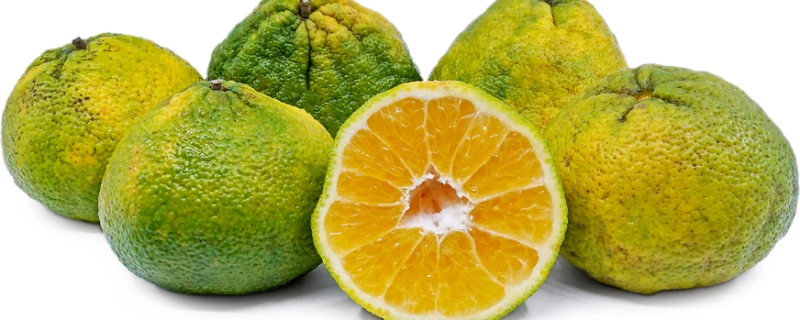
Nutritional Insights:
Ugli fruit is a good source of dietary fiber, vitamin C, potassium, antioxidants, and trace minerals. Regular consumption can significantly support the immune system, improve digestion, and enhance iron absorption from plant-based diets, making it beneficial for individuals prone to anemia or weakened immunity. The high potassium content aids in regulating blood pressure, benefiting those with cardiovascular concerns or hypertension.
Expert Insights & Culinary Tips:
- Flavor Pairings: Ugli fruit pairs wonderfully with avocado, seafood dishes, grilled chicken, fresh herbs (cilantro, mint), and nuts such as almonds or walnuts.
- Preparation Recommendations: The easily removable skin makes Ugli fruit highly convenient for fresh consumption. Culinary experts recommend serving fresh segments chilled for maximum enjoyment, or gently blending the juice into dressings, sauces, or beverages.
- Avoiding Bitterness: To prevent unwanted bitterness from rind oils, avoid excessive squeezing or rough handling of the skin during juicing.
Interesting and Curious Facts:
- Ugli fruit was discovered growing wild in Jamaica around 1917, believed to be an accidental hybrid of citrus fruits.
- Its playful name “Ugli” reflects its rough, irregular appearance, contrasting humorously with its pleasant taste and growing popularity.
- Jamaican Tangelo is marketed globally as "Uniq fruit," highlighting its unique combination of citrus characteristics and appealing flavor.
Harm and Dietary Considerations:
While generally safe, Ugli fruit may cause digestive irritation for individuals with gastritis or acid reflux if consumed in large quantities due to moderate acidity. Individuals allergic to citrus should avoid Ugli fruit entirely. Moderate consumption during pregnancy is considered safe.
Religious Dietary Considerations:
Ugli fruit is universally permissible within major religious dietary frameworks, including Halal, Kosher, Hindu vegetarianism, and Buddhist dietary practices, without any known restrictions.
Final Thoughts & Sensory Journey:
Ugli fruit delights with its harmonious blend of sweetness, mild tartness, and refreshingly clean citrus aroma. Despite its rough exterior, its gentle, juicy interior offers a delightful sensory experience, making Ugli fruit a uniquely appealing addition to both everyday diets and culinary creativity.
Resources:
- "The Citrus Industry" by Walter Reuther, Herbert J. Webber, and Leon D. Batchelor (University of California Press, 1989)
- "Citrus Fruit: Biology, Technology and Evaluation" edited by Milind Ladaniya (Academic Press, 2008)
- "Tropical and Subtropical Fruits: Postharvest Physiology, Processing and Packaging" by Muhammad Siddiq (Wiley-Blackwell, 2012)
